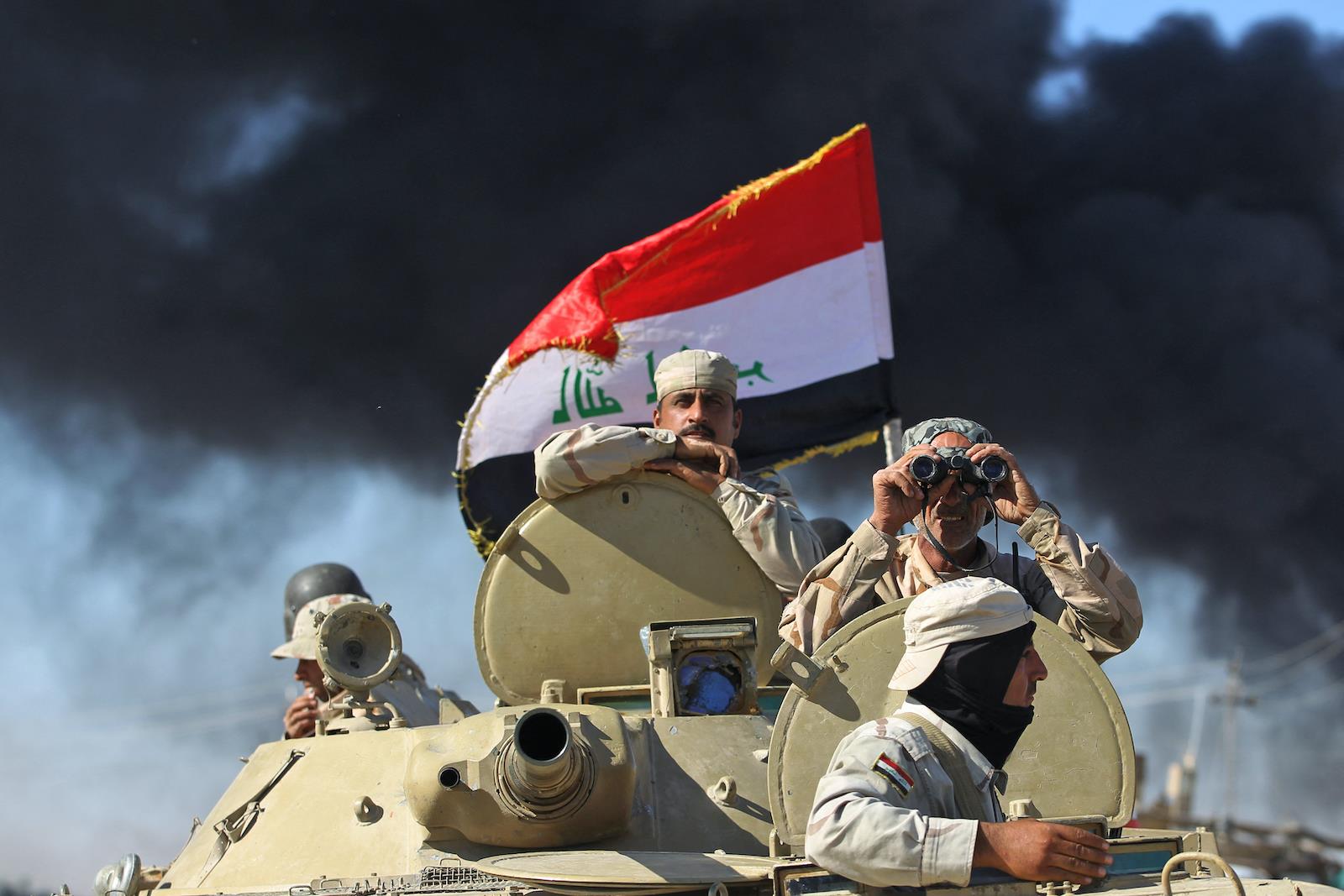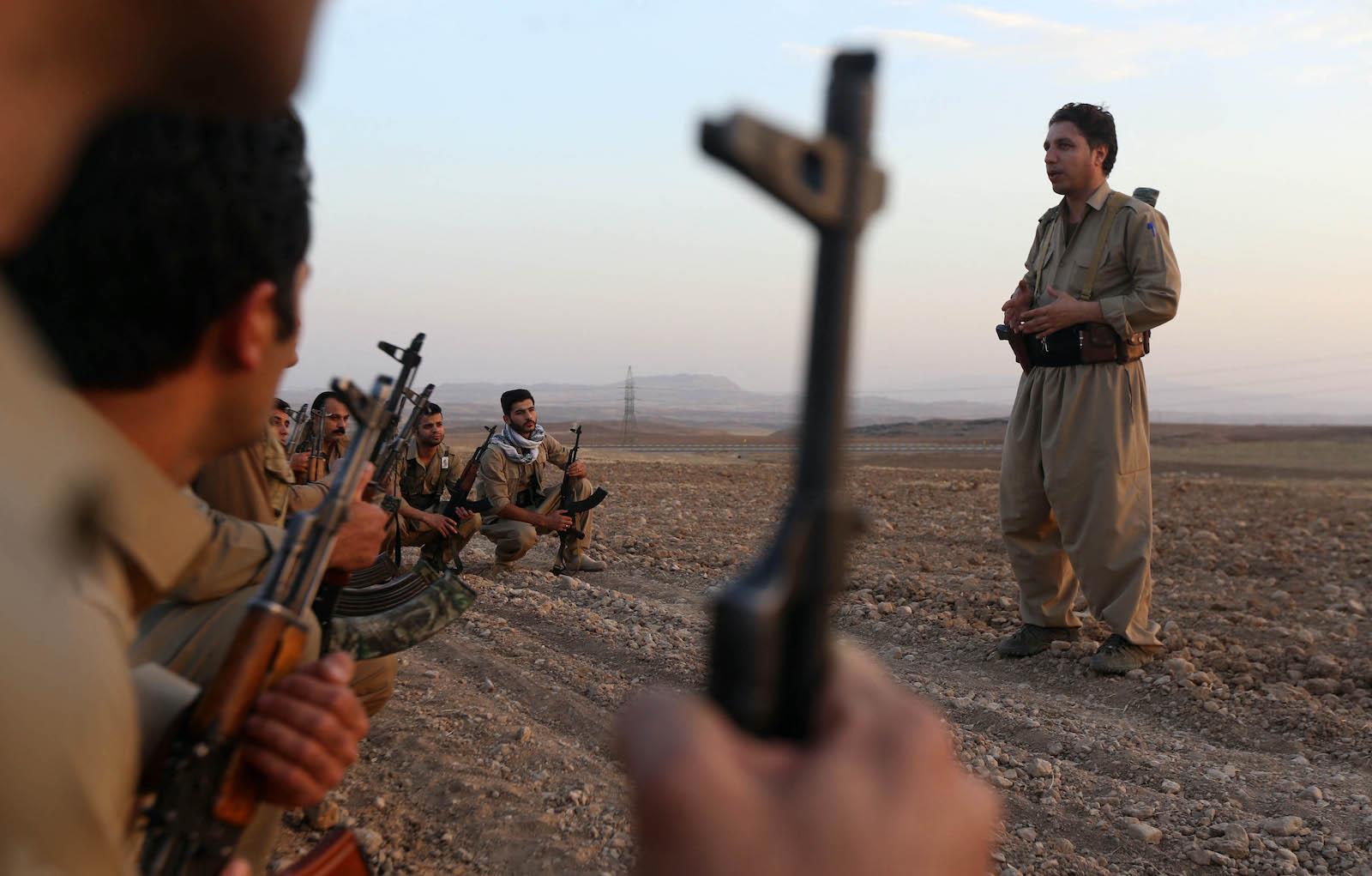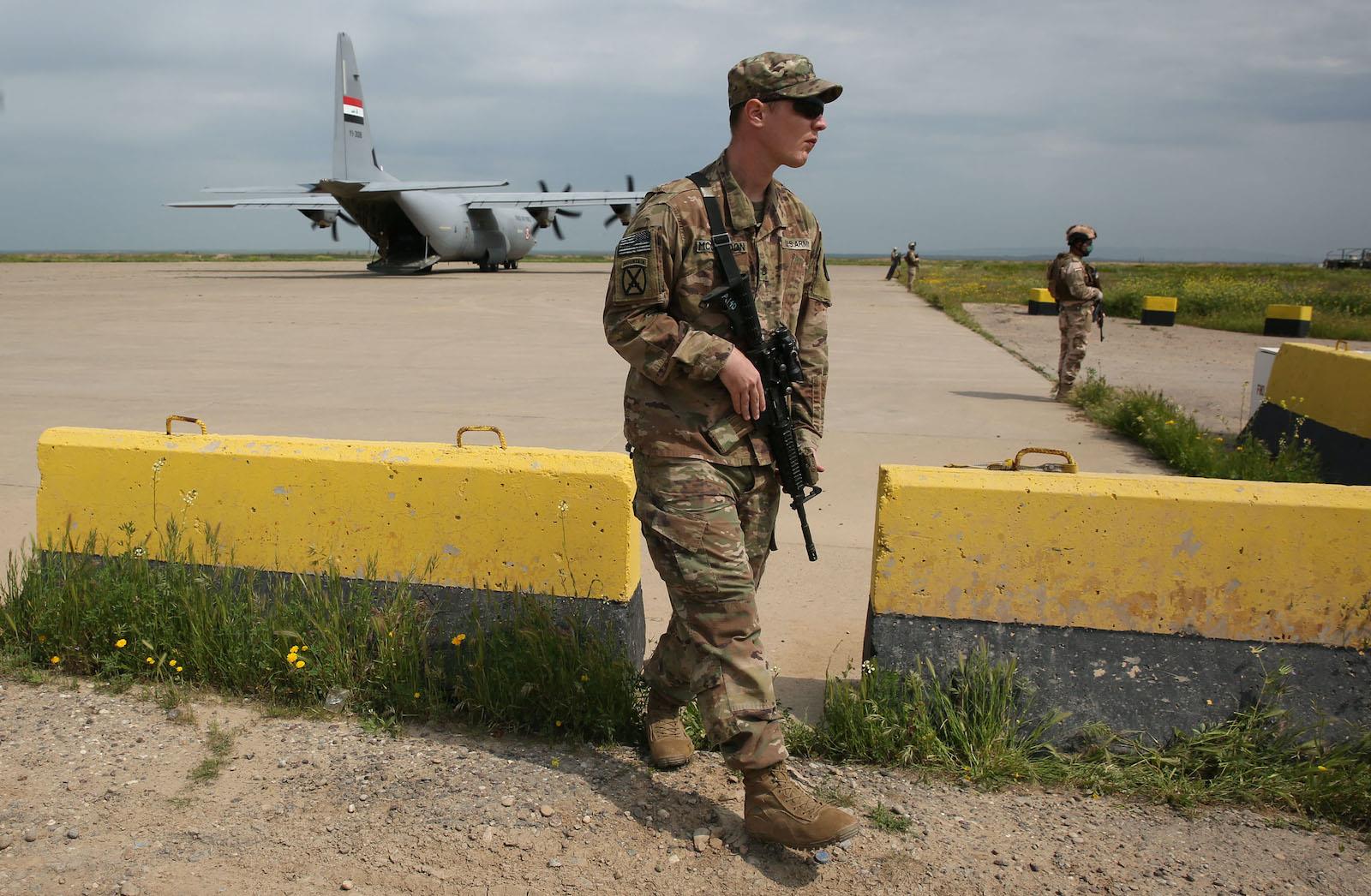(MENAFN- Asia Times) The Taliban's rapid takeover and America's chaotic withdrawal from Afghanistan have set alarm bells ringing in nearby Iraq, the other“forever war” the US plans to exit within this year.
Both parallels and differences between Baghdad and Kabul have been aired by Iraqi politicians and pundits in recent days, with many expressing shock and bewilderment at the suddenness of Washington's Afghan collapse.
“Nobody expected this kind of pull out,” Bayar Mustafa from the University of Kurdistan-Hewler in Erbil told Asia Times.“They even left all their personal weapons behind. What kind of withdrawal is that? It's a big failure for the US.”
President Joe Biden is also now the third US leader in a row to support the end of American“forever wars”, promising on July 26 that“In Iraq… we're not going to be, by the end of the year, in a combat mission.”
At the same time, the administration in Baghdad has many similarities to the one that just collapsed in Kabul, with Iraq still a highly fragile state 18 years after the US-led coalition first invaded and occupied the country.
These similarities include a central government that lacks national authority while being plagued by allegations of corruption, sectarianism and incompetence.
At the same time, both Baghdad and Erbil – the capital of Iraq's Kurdish-controlled north – have received colossal amounts of military and financial aid from the US and its allies since 2003.
Yet, Iraq's largely Western-trained security forces remain divided, with their loyalty and effectiveness often questioned – similar to the US-trained Afghan National Security Forces that quickly crumbled after US troops withdrew.

Iraqi forces advance towards the Islamic State (IS) group's stronghold of Hawija on October 4, 2017, during an operation to recapture the town from the jihadists. Photo: AFP / Ahmad al-Rubaye
“Currently, there's a US military advisory team in Iraq that's about 2,500-strong,” Ibrahim Al-Marashi, associate professor at California State University San Marcos, told Asia Times.“That's about the exact same number of troops there were in Afghanistan on the eve of the withdrawal.”
Under such circumstances,“The general public here have been psychologically hit by the impact of the US withdrawal from Afghanistan,” Dlawer Ala'Aldeen, from the Middle East Research Institute in Erbil, told Asia Times.“They've been left wondering, can we rely on the US to stay – and what will happen if they go?”
Complex calculations
Yet for all the similarities between the two US-led missions, there are also key differences.
For one, the US has already attempted to withdraw from Iraq, with what Washington now sees as disastrous consequences.
“In 2011, former US President Barak Obama withdrew US forces here, long before they decided to pull out of Afghanistan,” recalls Mustafa.“What brought them back was ISIS.”
In 2014, Islamic State swept across much of Syria and Iraq.
“Some 66,000 Iraqi troops, trained and equipped by the US were defeated by maybe 500 ISIS fighters,” adds Mustafa.
A US-led coalition, alongside Kurdish forces and an umbrella group of pro-Iranian Iraqi Shiite militias, known as the Popular Mobilisation Forces (PMF), organized the eventual fight back.
Since then, ISIS has been largely defeated but is still active in both Iraq and neighboring Syria.
“There's a big lesson to be learned there about the weakness of the Baghdad government and the importance of the US presence,” Mustafa adds.
Another major difference between Iraq and Afghanistan is that aside from ISIS, the other main beneficiary of a US exit would likely be a particularly problematic country for the US.
“Iran,” Ala'Aldeen says.“That's the elephant in the room. If there was no US toehold here, Iran would have a free hand across Iraq and Syria, all the way to Lebanon.”

Iranian Kurdish Peshmerga, members of the Iranian Kurdistan Democratic Party (KDP-Iran), take part in a routine military exercise in Koya, 100 kilometers east of Arbil, the capital of the autonomous Kurdish region of northern Iraq, October 22, 2017. Photo: AFP / Safin Hamed
Pro-Iranian groups in Iraq have also called for the US to end its presence in the country altogether.
Some groups within the PMF have also attacked US bases in the country in recent months, including with drones and rockets.
Yet, at the same time,“Militias in Iraq that are linked to Iran don't have to take over the country, like the Taliban,” Al-Marashi points out,“because they're already in parliament.”
Indeed, pro-Iranian Shiite parties already have major clout in Iraqi domestic politics.
It was pressure from these groups that sent Iraqi Prime Minister Mustafa Al-Kadhimi to Washington in July to get Biden to announce the coming end of US combat operations.
“If the US support were gone, the domestic opposition to these pro-Iranian groups would lack the critical mass to confront them and prevent Iranian hegemony,” says Ala'Aldeen.
Meanwhile, US military support for Kurdish forces has also raised the ire of a second neighbor: Turkey.
Ankara alleges some of these US-backed forces are linked to Turkey's Kurdish separatist guerrillas – the PKK – and has demanded the US cease helping them.
Turkey has also launched military operations against alleged PKK bases in Kurdish-controlled northern Iraq – known as the Kurdish Regional Government (KRG).
Ankara also maintains a string of military“observation posts” inside Iraqi territory.
“If the US leaves, Iraq and the KRG will be even more vulnerable to Turkey and Iran,” says Ala'Aldeen.
Indeed,“Turkey is already testing the reaction of the US and the international community,” Mustafa says, referring to an August 17 Turkish drone strike on a clinic in Sinjar in north-western Iraq.
The strike killed a senior Iraqi Kurdish official Ankara links to the PKK, along with at least two others.
“The Iraqi government couldn't even condemn the action,” Mustafa adds.“It makes us feel that the country is in danger of becoming a battleground between Turkey and the Iranians if the US and the West withdraw.”
Eye on the exit
Meanwhile, since the collapse of the Western-backed government in Kabul began, US officials have been keen to stress that there are no parallels with Iraq.
Withdrawal“is clearly not on the mind of President Biden”, US Ambassador to Iraq Matthew Tueller told Kurdish journalists in Erbil on August 11, while promising the US was in Iraq“for the long haul.”
Yet, events in Afghanistan have clearly caused some new thinking in Iraq and elsewhere around the region.

A US soldier walks at the Qayyarah airbase in Iraq in a file photo. Photo: AFP / Ahmad Al-Rubaye
“Many are trying to reposition, recalculate their options and views of the US and its role here in Iraq,” says Mustafa.
How those recalculations play out in the months ahead will likely set the stage, too, for more than just Iraqi domestic politics.
As Tueller also said in Erbil,“The security of the Middle East is the security of Iraq” – with many in Baghdad and beyond likely to agree.
MENAFN25082021000159011032ID1102679721